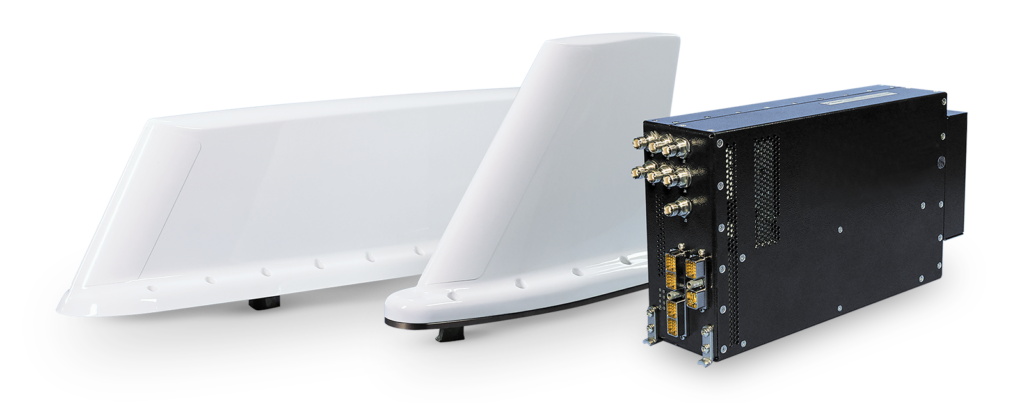
SmartSky Networks anticipates obtaining STCs for multiple aircraft models. The company also introduced SmartSky Private Intranet routing this week, powered by its Skytelligence services platform, to enhance their air-to-ground connectivity offerings. Pictured above is SmartSky’s flagship hardware. (Photos: SmartSky Networks)
ORLANDO, Fla. — Last week, SmartSky Networks—provider of air-to-ground in-flight connectivity—made an announcement that it expects to complete Supplemental Type Certificates (STCs) for at least seven aircraft models this quarter. The next one coming up is an STC from the FAA for the Dassault Falcon 2000. The expected STC would complement the certification received for the Falcon 900 earlier this year.
“We’re going to almost double our STC count,” remarked CEO Dave Helfgott in an interview with Avionics International at the Aircraft Electronics Association (AEA) Convention this week. “Our goal is to have over two-thirds of the addressable market covered by the end of the year, and more if we go faster. We’re going as fast as we can right now,” he said.
The company announced the launch of SmartSky Private Intranet routing at the start of this week. The Private Intranet (PI) routing is powered by SmartSky’s Skytelligence services platform, which connects the aircraft interface device to the SmartSky air-to-ground (ATG) network.

“We’re also expanding the work we’re doing in Skytelligence, not just for private intranet,” remarked Ryan Stone, president and co-founder of SmartSky.
Avionics International has previously featured insights from both Stone and Helfgott regarding its ATG connectivity service. The Cessna Citation X series aircraft was issued an STC last fall. The CEO and the president also discussed the company’s strategic relationship with Textron Aviation.
SmartSky has recently been conducting demonstration flights to showcase its ATG technology. As part of the “SmartSky Experience Tour,” the team flew passengers in partnership with Thornton Aviation at Van Nuys Airport in California earlier this month.
Stone sees their biggest challenge as communicating to potential customers the value of their offerings. “When we are able to spend time with someone and take them on a demo flight, they get it. But we can’t do that for everybody,” he explained to Avionics.
“It’s hard to relay that because you get so caught up in technobabble or hand-waving,” said Helfgott. “The real question is, what was the experience like? Are you actually able to take as many devices as you want and do whatever you want with them while you’re flying? That’s the real test. It’s just very hard to scale that; you can’t take everybody in America up on a plane.”
“We’re showing people that you don’t have to lower your expectations any more when you board the aircraft,” added Stone.

SmartSky enables the use of multiple devices in-flight.
The launch of PI routing this week underscores the capabilities of SmartSky’s network architecture compared to a more generic approach of connecting to aircraft, such as by satellite. The company’s physical and RF networks enable creation of a private network, Helfgott explained.
“With the 5G technology-based network, where you have beamforming, software-defined radios, and software-defined networking, that combination allows us to go towards the safety side of services in conjunction with an aircraft interface device,” rather than just focusing on the back of the cabin, Stone said.
“The other way to think about it is from the enterprise perspective,” he continued. “When you go to an office, your laptop connects to the network in the office. That’s secured by the IT department of an enterprise. IT departments set standards, and the egress point to the internet is through that IT department. So they have a lot of control for security and privacy. This essentially extends that network to now make it so that in the aircraft, when you sit down with your laptop, you can have the same virtualized physical infrastructure.”
Simply put, SmartSky creates a safe and secure bubble inside of a company’s defined private network, noted Helfgott. “It opens up the rest of the aircraft to other types of applications that haven’t been explored as rigorously as they can be. Connected aircraft is more than just the back of the plane—it’s flight operations and it’s the cockpit,” he commented.